One of the biggest ways you can ensure you get the best women’s bike is to educate yourself on the various types of women's bikes, what they offer, and what profile of women they fit.
Knowing how many kinds of women’s bikes there are helps you choose one that best fits her needs, comfort, and riding style, whether she plans to ride on roads, trails, or casually around town.

Classification of Women’s Bikes
There are several main types of women’s bikes, but they can generally be classified into two: regular bikes for women and adventurous bikes for women.
- Regular bikes for women include cruiser bikes, commuter or city bikes, electric women's bikes, and city bikes.
- For more adventurous women riders, common types of women's bikes include hybrid bikes, mountain bikes, and road bikes.
All in all, these are considered the main types of women’s bikes because they cover the most common riding styles, purposes, and comfort needs women typically look for when buying a bike.

Types of Women’s Bikes Explained
1. Cruiser Bikes for Women
Cruiser bikes are arguably the most popular type of women's bikes: they are comfortable, stylish, and built for relaxed riding at slow speeds.
With wide saddles, balloon tires, simple gear systems (usually single-speed), and upright handlebars, a cruiser bike is a good fit for almost any woman.
If you are a woman who mainly needs a bike for leisurely rides at the beach, around the park, or just cruising around the neighborhood, a cruiser bike is the best women's bike you can get.
Explore the 4 best cruiser bikes for women from Viribus
2. Commuter Bikes for Women
Commuter bikes are the most practical women’s bikes, and they are mainly built for daily transportation in an urban setting.
With sizeable racks, fenders, and sometimes, even built-in lights, a commuter bike will complement almost any woman’s lifestyle, allowing her to go about her daily activities with ease.
Commuter bikes are the best women's bikes for women who primarily use their bikes for commuting, running errands, or going on short urban rides (visiting family, participating in hobbies, etc.)

3. Comfort Bikes for Women
Comfort bikes for women are designed for easy, relaxed riding, with a priority to comfort and smoothness over speed or performance.
They usually feature really wide, cushioned seats (with suspension), wide step-through frames, and medium-wide tires for stability and comfort. Some even have smaller racks for light loads.
Comfort bikes are the best bikes for women who prioritize gentle fitness rides, errands, or casual commuting, especially if comfort and ease are more important than high performance.
4. Road Bikes for Women
Road bikes are the best bikes for women who enjoy long-distance rides, fitness cycling, or simply enjoy commuting for long distances on smooth roads.
They are lightweight bikes that are built for speed and efficiency on paved roads. Commonly used for racing and cycling competitions, they feature thin tires, drop handlebars, lightweight frames, and multiple gears for smooth shifting.
Consider a road bike for a woman who has already built a lifestyle around cycling and relies on her bike for exercise, commuting long distances, or engaging in social activities.

5. Mountain Bikes for Women
Mountain bikes for women are made for women who love trail riding, adventure, and exploring over terrain that may be uneven or otherwise challenging.
Compared to regular women's bikes, they have wider, knobby tires for traction, suspension (front or full), and stronger brakes for tighter control on slopes and uneven terrain.
A mountain bike for women is the best choice for a woman who is interested in high-performance cycling. There are many women in mountain biking and other equally intensive cycling activities who would appreciate a mountain bike.
6. Hybrid Bikes for Women
Hybrid bikes for women are the best for women who want a versatile bike for commuting and recreational rides on mixed terrain.
A hybrid bike is a mix between a road bike and a mountain bike, offering medium-width tires, upright handlebars, moderate gearing, and comfortable seats.
| Women's Bike | Description | Best For |
| Cruiser Bikes | Comfortable, upright, with wide seats and handlebars; built for casual rides. | Leisure riding on flat paths or around town. |
| Hybrid Bikes | Combine features of road and mountain bikes. Usually lightweight but stable. | Commuting, fitness rides, or mixed terrain. |
| Road Bikes | Lightweight bikes with drop handlebars and thin tires for speed. | Long-distance rides or smooth pavement cycling. |
| Mountain Bikes | Built for off-road use with suspension and thick tires. | Trails, hills, and rough terrain. |
| Electric Bikes (E-Bikes) | Equipped with a motor to assist pedaling. | Commuters, riders who want easier hills or longer rides. |
| Commuter/City Bikes | Practical bikes with racks, fenders, and upright posture. | Daily rides to work or errands. |
| Folding Bikes | Compact bikes that fold for storage or transport. | Urban commuters or those short on space. |
| Comfort Bikes | Focus on easy handling and cushioned rides, often with step-through frames. | Casual riders who value comfort and stability. |

How to Choose the Right Women's Bike
There is only one principal criterion for determining which type of women's bikes to get: the purpose to which she is most likely to put the bike.
- Fitness, exercise, and speed, choose a road bike
- For riding on adventure and trails, choose a Mountain Bike
- For casual rides and (limited) performance, choose a hybrid bike for women
- For relaxed, stylish riding, go for a cruiser or Comfort Bike
- For commuting and running errands, choose a city/Commuter Bike
If you need extra power, go for an electric bike. Choose an e-mtb, electric cruiser bike, electric comfort bike, etc
If you have limited space for storage, consider a folding bike for women. Some comfort bikes, hybrid bikes, and even cruiser bikes have folding models
Final Thoughts on Women's Bikes
The “best” bike is the one that fits your lifestyle, comfort, and riding needs. There’s no need to feel intimidated by the many options: focus on where you’ll ride, how often, and how much help.
Before stepping out, however, you might want to be clear on whether bike helmets are required for e-bikes in your state.

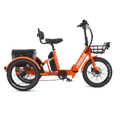


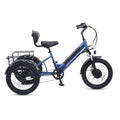
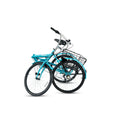
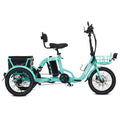

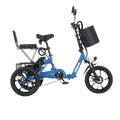




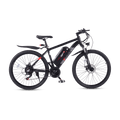
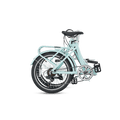
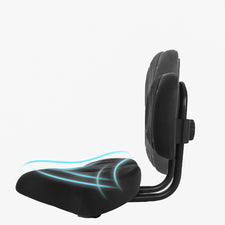





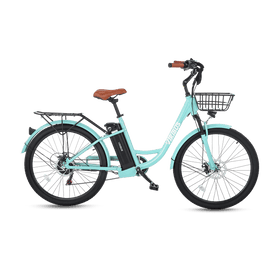
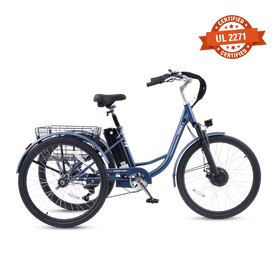
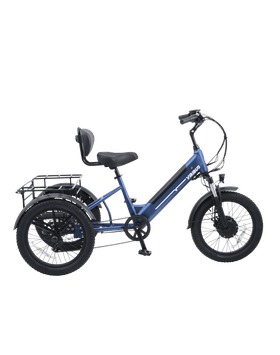



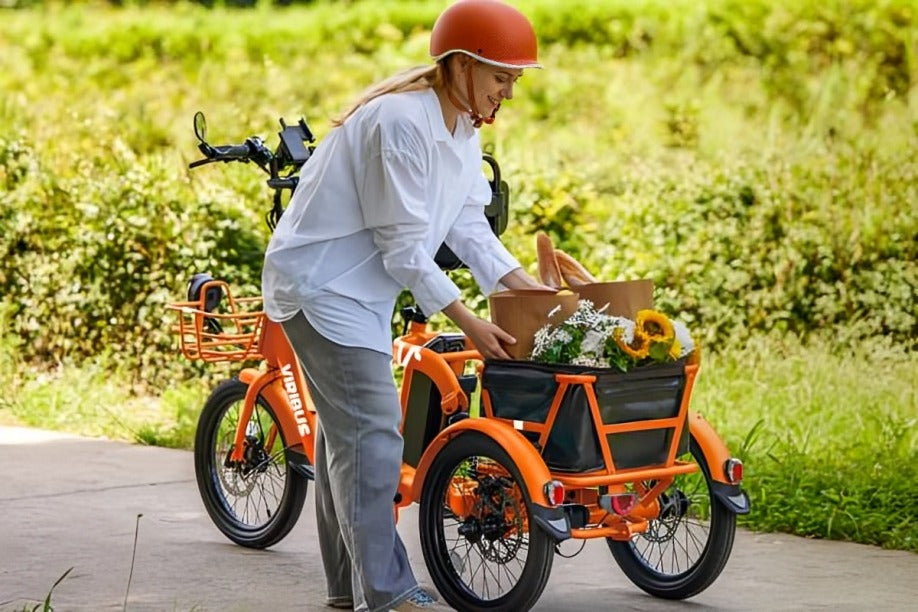
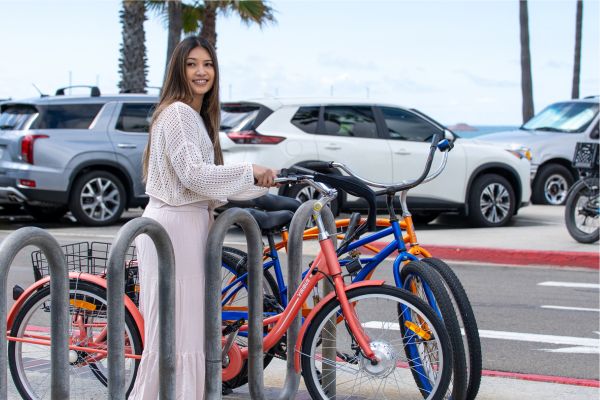
Leave a comment
All comments are moderated before being published.
This site is protected by hCaptcha and the hCaptcha Privacy Policy and Terms of Service apply.